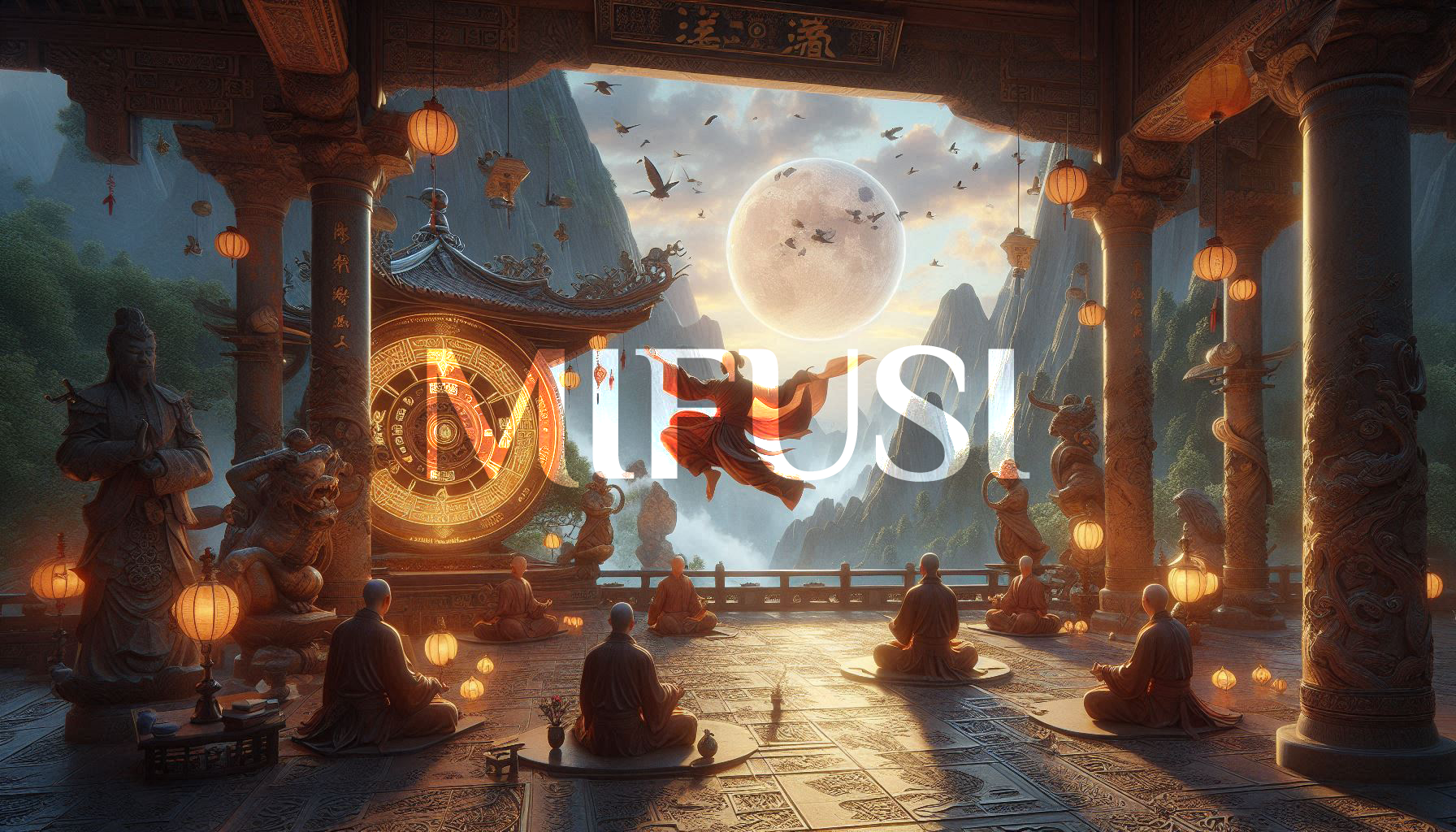Buddha Kungfu
ĐẠO VÀ CHÍNH TRỊ by Hữu-Huyễn on Mon Apr 20, 2009 12:18 pm; edited by xiaobaiyun
Excerpt from article ‘Magic-Kungfu” (Spirits’ Fist Kungfu, Buddha Kungfu, and Sworn Fist Kungfu)
“… Following their initial introduction in the eighties of the last century (1980’s), Magical Kungfu seemed to have inexplicably disappeared from the martial world. Nobody knew where to find the disciples of magical kungfu, and whether any were still painstakingly practicing it.
While browsing the internet recently, I stumbled upon a notice from an ‘orthodox’ School of Magical Kungfu. The notice mentioned two Masters of the Seven Mountains Spirit Kungfu who had recently introduced Magical Kungfu skills in Hanoi and were now teaching them there. Additionally, it stated that these two were the inaugural instructors of the Magical Kungfu School originating from the central part of Vietnam.
Comment:
According to the article mentioned above, although Magic-Kungfu is rarely seen in northern Vietnam, it is quite popular in Central and South Vietnam. In central Vietnam, there was a martial arts school in Quang Tri province. The students learn regular kungfu until they reach green belt level, at which point they will be initiated into the Magic-Kungfu practice in a spiritual ceremony with lighted incense, burnt to honor the Patriarch (of the other world). Afterward, a student drinks the ashes from a Yantra, and as soon as he chants one Mantra, he receives the Force from the Spirits moving him through all the fighting motions. Having received the Force, the student will continue his daily self-practice in various kungfu fighting styles taught by the Spirits.
This ‘kungfu’ school also serves as a venue for selecting and initiating members into the Dai Viet Party, as revealed by a former Dai Viet Party leader who happens to be a Christian. When he underwent initiation into Old_Guru Secret Teaching by reciting the prayer “Our Father in heaven,” he experienced a profound sensation, spreading his arms out to the sides and lowering his head, reminiscent of Jesus on the cross. He recounted that both young men and women who practiced Magic-Kungfu were granted entry into the party. Despite witnessing their impressive demonstrations and hearing countless mystical stories, he declined the invitation to learn Magic-Kungfu himself. It seems his refusal stemmed from being a party leader and a Christian.
Another person told me that he practiced kungfu at the kungfu forge, which is a slang term for a martial arts school, in Quang Tri up to the green belt level and stopped there. He decided to discontinue because he did not like politics and understood that by learning Magical Kungfu, he would also become a member of the Dai Viet Party.”
In the secretive world of kungfu schools in South Vietnam, tales of mystique and prowess circulated quietly. One day, over a casual conversation, a 30-year-old acquaintance of mine, currently working as a waiter at a restaurant in the U.S., shared a fascinating story. He recounted hearing about someone who had returned to Vietnam and bore witness to an extraordinary spectacle: his uncle, a martial arts master, instructing a group of students in nightly sessions of the Spirits’ Kungfu. These sessions were said to be nothing short of awe-inspiring, with students executing incredible moves and even demonstrating seemingly impossible feats, such as allowing their bodies to be slashed by knives without sustaining injury.
As my acquaintance delved deeper into the narrative, he revealed that he had been initiated into this mysterious world. He recounted participating in the occult teachings and even drinking the ashes of the Yantra, a ritual imbued with profound significance. However, amid the busy demands of his life, he confessed that he hadn’t found much time for extensive practice.
Old_Guru Secret Teaching encompasses two main branches: Buddhist Kung Fu and Buddhist Literature. According to the “Quintessence of Old_Guru Secret Teaching” (page 7 in both the Vietnamese and English versions), the Yantra, known as Heaven’s Scroll, is utilized to transmit the Secret Dharma and is referred to as Buddha power or Buddha Kungfu. Individuals who solely practice Buddha-Kungfu specialize in occult powers and martial arts training with the Spirits exclusively, often lacking knowledge of Buddhist literature or theosophy. On the other hand, those who focus on Buddha Literature delve into teachings concerning morality, religious principles in both tangible and intangible realms, and matters of Heaven’s Plan.
In Southeast Asian countries, the majority of occult practitioners follow Buddha Kungfu, with fewer belonging to the Buddhist Literature division. Despite the diverse names of occult sects, they generally require initiation rites into the religion, involving rituals such as offering prayers to Buddha, Gods, or past Patriarchs. Additionally, practitioners typically consume Yantra ashes and recite mantras while joining their hands in prayer. These occult schools possess numerous Yantras and mantras, and upon graduating to become masters, disciples select specific ones for transmitting occult power.
While there are hundreds of occult sects, they all essentially fall under the umbrella of Old_Guru Secret Teaching. The source of occult power typically stems from the Yantras (charms) of Thailand, Cambodia, or Laos. Although fewer individuals study occult power from Myanmar and Indonesia due to geographical distance, the teachings are generally similar to those of Thailand, Cambodia, or Laos.
Each sect has its religious oath, with slight variations in content. However, the overarching principle remains consistent: to lead a moral life, practice fairness, and refrain from excessive killing, including the unnecessary killing of animals.
The Magic-Kungfu school may have been introduced to Vietnam through occult sects with roots in China or India long ago. It’s a subject clandestinely taught to humans by Heaven itself, aimed at showcasing the existence of Deities and Saints. Mastery of this art fills Kungfu Masters with profound awe and unwavering faith.
The Magic-Kungfu school in Hanoi might have originated from the kungfu forges of the Dai Viet political party in the central region of the country. However, over time, the use of Magical Kungfu in recruiting party members ceased, along with the oath of loyalty to the Party.
In the southern regions, many Magic-Kungfu sects strictly focus on teaching the art of kungfu alone. Students are afforded the freedom to hold their own political opinions. Furthermore, regular martial arts practitioners also engage in Magic-Kungfu to attain health benefits and acknowledge the existence of Spirits.
Those who pursue martial arts as a career to uphold their political ideals have the freedom to align themselves with any party or country based on their individual destiny or predestined affinity. It’s believed that individuals burdened with heavy karma will ultimately settle their karmic debt, regardless of the party they serve.
An illustrative example is that of the Chinese General Quan Cong, also revered as Saint Quan. He wielded the sword against others, and in the end, he met his demise at the hands of a sword. This serves to confirm a biblical saying: “He who lives by the sword will die by the sword.” (Matthew 26:52)
Falun Gong (Falun Dafa), founded by Li Hongzhi, is also regarded as an occult group, with Li Hongzhi purportedly learning occult practices from Thailand and other Asian countries. Behind Li Hongzhi stands the Nationalist Kuomintang of Taiwan, which utilizes Falun Gong for propaganda against China. In response, the Chinese government labeled Li Hongzhi as a renegade, accused his followers of treason, and officially banned Falun Gong.
Li Hongzhi, who was born and raised in China and previously held affiliations with the Communist Party (serving as a trumpeter in the police band, a guesthouse attendant, and a worker in a factory security section), moved to the United States and aligned himself with the Kuomintang of Taiwan to act against his native country, a puzzling decision.
The fact that Falun Gong admitted Taiwanese members from Western countries and directed them to support the Taiwanese Kuomintang party parallels the Dai Viet Party in Central Vietnam recruiting Magical Kungfu practitioners into their ranks. Evidence of this is seen in Falun Gong’s numerous demonstrations involving people from Hong Kong and Taiwan, as depicted on television. During these demonstrations, participants’ joined hands were observed to move slightly, indicating a subtle force at work. The Chinese government responded by arresting and imprisoning many of them, while Li Hongzhi and his Falun Gong group received praise from Taiwan. This underscores the political nature of the movement.
It is stated in the book “Nominations of the Gods and Mysticism” that all earthly wars are part of Heaven’s plan. This was evident in the conflicts between the China Shang (1700-1027BC) and Western Zhou dynasties (1027-771BC). Disciples from both warring parties, aspiring to achieve the rank of Immortal, became Saints. They possessed magical powers and had the freedom to choose to serve either the Shang or Western Zhou dynasties. When the war concluded, survivors were promoted to the rank of Immortal, while those who perished were nominated as gods (genies). Thus, the armies of the Righteous and the Evil (representing white and black magic schools) were essentially celestial, serving Heaven’s government and fulfilling Heaven’s plan. However, the combatants themselves believed they were acting of their own will and were unaware that their actions were influenced by their karmic affinity and predetermined destiny as ordained by Heaven’s court.
According to the rule of The High Spirits governing “The Demons and Gods” office, individuals who serve as generals in their lifetime will become gods after death. This applies only to valiant, loyal, upright, and worthy generals, excluding the wicked and cruel ones. Those who commit unrighteous deeds or treason will face punishment in hell, while the souls of common soldiers become ghosts and spirits of the lower realm, under the command of the gods.
Conclusions
Kings and political leaders throughout history have consistently wielded control over religious organizations and occult sects to bolster their rule. A prime example is the Kuomintang’s utilization of Falun Gong and the Dai Viet Party’s utilization of magic kungfu as tools for governance. However, this dynamic isn’t problematic when viewed through the lens of Heaven’s Plan, which dictates all earthly occurrences. Whether voluntary or involuntary, conscious or not, individuals including kings, political leaders, and members of religious and occult groups, are all subject to the manipulation of the High Spirits in carrying out Heaven’s Plan.
Throughout the ages, followers of Brahmanism have gleaned insights into Heaven’s laws through their worship of deities like Khrisna, the god of destruction, and Vishnu, the god of creation. This underscores the understanding that Heaven is the ultimate ruler, and its Plan encompasses not only compassion and forgiveness but also warfare and bloodshed. The earthly law follows a cyclical pattern of creation and destruction, peace and war. Those who grasp Heaven’s Plan adopt a pragmatic outlook, abandoning futile fantasies of perpetual peace. They recognize that killings and conflicts may serve as lessons or dramas aimed at illuminating heavenly matters in one’s life.
The religious histories of Egypt, Greece, and China reveal a common theme: Emperors and Kings considered themselves as sons of Heaven, entrusted with a divine mandate to rule. They conducted sacrificial ceremonies to honor Heaven and align themselves with its will. While Heaven bestows kings with the power to rule, the longevity and success of their reigns depend on their virtuous governance.
A righteous King aligns with Heaven’s will and is rewarded with sanctity after death, while a tyrant who defies Heaven faces punishment. The Judeo-Christian Bible articulates that the Spirits control kings, and disobedience results in divine retribution.
Kings have the prerogative to utilize organized religions as political tools or suppress dissent to maintain their authority. However, exceptions exist when spiritual practitioners, owing to their moral integrity, possess a higher standing than the king. In such cases, they act as representatives of Heaven, offering counsel and guidance to the ruler.
Certainly! Here’s the revised version:
This analysis sheds light on the intertwining of life, religion, and politics. While I welcome agreement, I believe debating is unnecessary; it’s intended solely for reflection.
Revised 3/4/24
Related Post
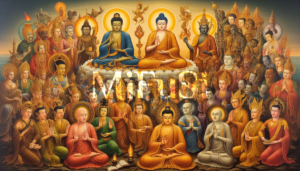
Atheism vs Blind Believer
Atheism vs Blind Believer The issue of Faith in major religions The concept of faith varies significantly across major religions....
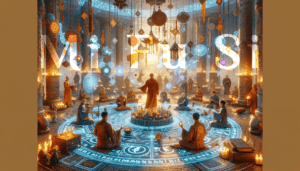
Rules of H’mong charms and spells
Rules of H'mong charms and spells (Re: Bùa ngãi xứ Mường - QUY TẮC BÙA PHÉP by Thái Hòa on...
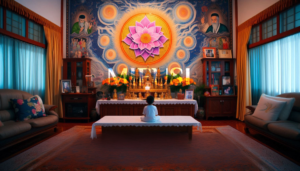
The Holy Force
The Holy Force Vietnamese: Kinh nghiệm về thần lực và tuổi thơ (posted at huyenbihoc.webs.com) My experience with the Force...
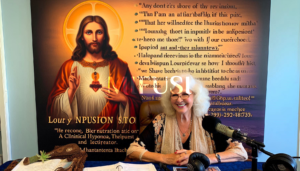
Story 12 – East-West Mystical Encounter
Story 12 -East-West Mystical Encounter Câu chuyện số 12 - Huyền bí Đông và Tây Phương by Hoctro-gia on 12...
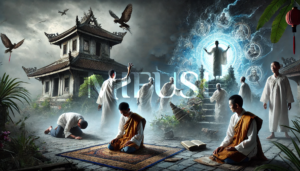
Haunted to Healed
Haunted to Healed Ấn chứng điểm đạo của TuTam by Tutam on 03 Oct 2016, 15:10, translated by Horangi My...
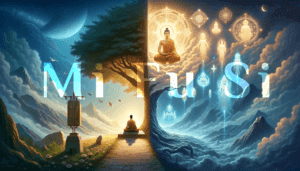
SELF-RELIANCE VS. DIVINE HELP
SELF-RELIANCE VS. DIVINE HELP by TTC on 04 May 2009, 03:18, translated by Horangi Question: What are the necessary steps...
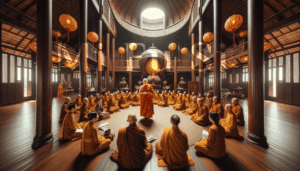
THE SUPERIORITY COMPLEX AND LACK OF TOLERANCE IN A VENERABLE
translated by Dianichi We would like to tell the story of a venerable monk known as the Living Buddha, who...
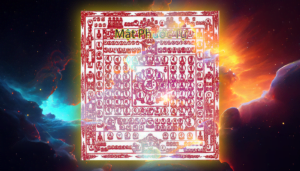
Chapter VI: III – Ucchusma On The Supernatural Power That Stops Hundreds Of Transformations
III. Ucchusma On The Supernatural Power That Stops Hundreds Of Transformations. North India, Samana Ajitasena brought over this Sutra under...
